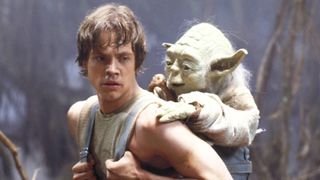The best movies on Disney Plus aren't that hard to find, it's the narrowing them down which is the tricky part. The streamer is absolutely full of classic films, with more being added all of the time too. So with so much choice, it's understandable if you need a guiding hand to help you along the way. Well, that's where we come in. We've broken down the 30 best movies to watch on Disney Plus right now below.
In our long list, you'll find everything from stone-cold classics like The Lion King to newer modern hits like Turning Red, along with blockbuster juggernauts from the MCU and Star Wars universes. Beyond that, there are some movies you might not have even known were available on the streamer, like Sister Act, Free Solo, and The Sound of Music. But, you'll only find movies that are available in both the UK and the US below, which is why the likes of Rye Lane and The Banshees of Inisherin are missing.
So, for the best of the best movies on Disney Plus, look no further than our ultimate guide right here.
- The best shows on Disney Plus
- Does the Disney Plus free trial still exist?
- Grab the best Disney Plus sign-up deals
The best movies on Disney Plus
Guardians of the Galaxy Vol. 3
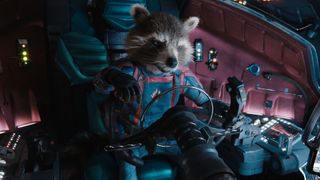
Guardians of the Galaxy Vol. 3 draws James Gunn's beloved MCU trilogy to a close in a poignant send-off. Kicking off after the events of Avengers: Endgame, Peter Quill (Chris Pratt) is reeling still from the loss of Gamora. But the galaxy isn't saving itself as Adam (Will Poulter) appears to cause trouble for this bunch of A-holes as one of their own lands themselves in serious danger.
In order to save Rocket (Bradley Cooper), they have to find a genetic passcode, sending the gang on a trip across the galaxy. There's an air of finality throughout this movie, which also marks Gunn's farewell from Marvel for DC adventures anew, but it's still imbued with so much comedy and levity. However, it's the emotion that really works the best as GOTG 3 provides some of the most gut-wrenching moments in the MCU so far.
Turning Red
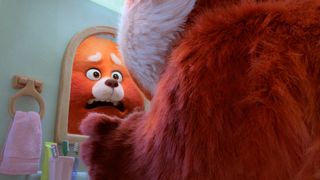
Turning Red follows Mei (voiced by Rosalie Chiang), a 13-year-old Chinese-Canadian girl growing up in Toronto in the early '00s. So far, so normal – except she turns into a giant red panda when she gets excited or stressed.
Turns out this is a family curse that affects the women in Mei's bloodline, but there is a way to contain it – except the one time when the ritual can be performed just happens to clash with the night her favorite boy band are playing a show. The movie's voice cast also includes Sandra Oh and Never Have I Ever's Maitreyi Ramakrishnan.
Hamilton
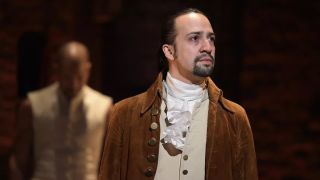
We’re sure you don’t need us to remind you of the Hamilton hype – after all, it broke records with 16 Tony nominations (11 of which it won), a Grammy win, and a Pulitzer Prize. Lin Manuel Miranda’s hip-hop musical won hearts all over the globe with its Broadway debut in 2015, and the cast was even invited to the White House to perform for Barack Obama.
Thanks to widespread lockdown, the theatre industry has been exploring how to make shows more accessible, and Disney Plus have given us the best of the best with a professionally recorded movie of the original Broadway production. Turn off the house lights and make sure all your phones are on silent please, audience members, the show is about to begin.
The Lion King
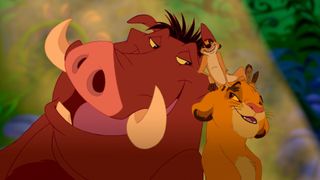
The Lion King is often heralded as the jewel in Disney’s crown and it’s easy to see why. Everything about it just feels so big: the scale of the stampede sequence, the sombre tone of James Earl Jones’ voice, the “Circle of Life”, and the grand themes of legacy and sacrifice. Thank god for Timon and Pumbaa, who step in right at the moment things start to get unbearably depressing.
It’s an epic story painted on such an exquisite canvas, from the vast plains to the bubbling green lava of Scar’s lair. It also spawned an entire generation of people who like to lift up their pets into the sky like they’re Rafiki showing off baby Simba. Who knew lions could get so Shakespearean?
The Toy Story trilogy
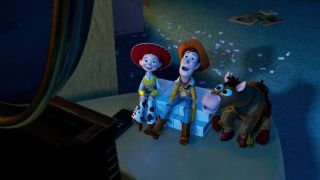
Pixar immediately branded itself as the studio obsessed with ambitious concepts. Their first-ever movie, Toy Story, puts forward the idea back that all your toys are alive and run around your room when you’re not looking. Instead of giving kids nightmares, it was somehow endearing. So the studio kept pushing and pushing until we got to Toy Story 3, which has Woody and Buzz Lightyear come to terms with their own mortality after they are thrown into a garbage incinerator. There are some twisted geniuses at work here.
Toy Story really did, right out of the gate, establish the trademarks that have made Pixar a powerhouse animation studio. Its unusual premise has philosophical and moral underpinnings that adults can pore over and analyse to death. Meanwhile, the kids in the audience are kept entertained by bright colours, lively characters, and funny jokes. Toy Story 4 acts as a nice epilogue to the trilogy but doesn't quite compare to the first three movies.
Sister Act
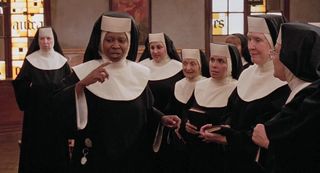
Lounge singer Deloris Van Cartier is present for a mob hit and ends up in the witness protection program. The last place her enemies would think to look? Saint Katherine’s Parish, a San Francisco convent, where she volunteers as its choir director. At first, Deloris clashes with the Reverend Mother, who disapproves of her throwing out traditional hymns in favour of gospel and rock stylings. Of course, by the time things wrap up, the two have developed a mutual respect.
This is peak Whoopi Goldberg – a performance where she can be cutting without being callous. And, wow, can she sing. The film’s so feel-good and people-pleasing that it’s hard to be cynical about it, especially when the nuns start to cover '60s classics like ”I Will Follow Him” and “My Guy” (switched to “My God”). It’s a reminder that sometimes it’s the most simple concepts that work, like pitching a lapsed Catholic pitched against the strictest of religious institutions.
Hocus Pocus
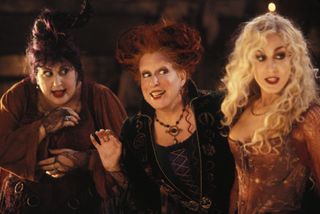
It’s sometimes a little too easy to forget that the Sanderson sisters are meant to be child-murdering villains in Hocus Pocus. After being accidentally resurrected in modern-day Salem by young Max, the trio start to cause havoc in the local town. If they’re not stopped, they’ll suck the soul out of every child for miles in order to maintain their vitality and youth.
While it wasn’t much of a hit at the time (especially with critics), Hocus Pocus has slowly grown in reputation and become a seasonal tradition. It was part of a refreshing wave of Halloween-themed movies that weren’t actually horrors, alongside The Addams Family and Caspar the Friendly Ghost. It’s a perfect film for people who want to celebrate the holiday but are also complete scaredy cats.
The original Star Wars trilogy
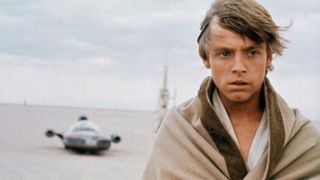
A princess, a scoundrel, and a farm boy: it’s this simple trio of characters that sparked one of the biggest cultural phenomena of all time. Each of them found their own way to save the day. Sometimes that involves taking up Jedi training and discovering your dad is the last person you’d want them to be, at other times it means choking a giant slug kingpin with your bare hands. Occasionally it means getting frozen into a man-sized ice cube so you can finally pay your debts.
These movies have crafted a fictional universe so rich and deep, there’s the constant threat that once you fall in you might never come out. Next thing you know, you’re three hours deep into researching the true origins of chindinkalu flute player Droopy McCool. Star Wars is the kind of world you yearn to live in, because it’s a place where the most insignificant person can become the greatest hero and where there’s always hope that good can triumph over evil, no matter how bleak it might seem.
The Pirates of the Caribbean trilogy
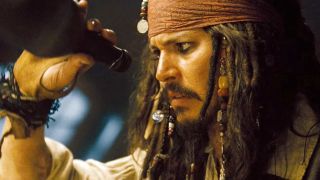
The franchise is concerned chiefly with the adventures of scallywag pirate Jack Sparrow, as he crosses paths with his mutinous former first mate Barbossa, the fiercely independent Elizabeth Swann, and her bland, but altogether quite sweet, love interest Will Turner. Add to that, there are curses, krakens, maelstroms, British imperialism, and a tentacle-faced Davy Jones to keep things lively.
People tend to disagree a little with how good Dead Man’s Chest and At World’s End are in comparison to the first film (come on, though, how can you resist a giant Naomie Harris exploding into a thousand little crabs… it’s so weird it’s good). But there’s something to be said for the ingenuity of this franchise, which cranked out old-fashioned romanticism and colourful characters from what was a 15-minute Disneyland ride. Let’s just never speak of the fourth and fifth films ever again…
Free Solo
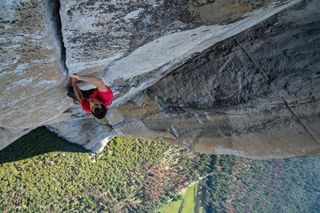
The winner of the 2019 Academy Award for Best Documentary Feature, Free Solo follows Alex Honnold on his quest to free solo climb (that means no ropes, harnesses, or anything that might save you if you slip) the El Capitan, a perilous cliff face in Yosemite National Park.
This is as nail-biting, dizzying, and downright terrifying as you could imagine (anyone with vertigo, beware). But what’s more surprising is how it gets inside Honnold’s head, as the filmmakers try to understand not only the kind of person who’d have such disregard for their personal safety, but how his actions affect his relationships with others, including with his anxious girlfriend Sanni.
Thor: Ragnarok
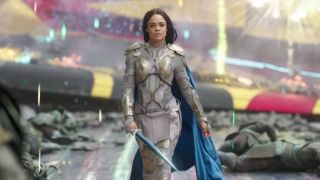
After Kenneth Brannagh's Shakespearean origin story and Alan Taylor's po-faced sequel, Thor was begging for a fresh start. Thank goodness, then, for Taika Waititi, director of What We Do in the Shadows and Hunt for the Wilderpeople, who turned the character around, re-imagining the God of Thunder as an arrogant mess.
Thor: Ragnarok may not be the most important MCU movie, story-wise, but the movie makes for the funniest Marvel outing to date. Chris Hemsworth, Tessa Thompson, and Jeff Goldblum are all clearly having a blast playing off the fast and loose script. Also featuring dazzlingly outlandish visuals, thanks to some impressive set design and fantastical uses of CGI, Ragnarok makes for a comic book-induced fever dream.
Fantasia
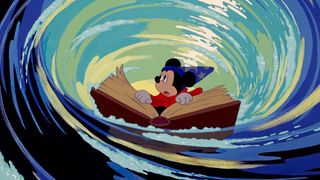
Essentially a series of shorts set to classical music, the film takes us through all manner of imaginative scenarios: from the colourful world of centaurs and fauns, the extinction of the dinosaurs, to the monstrous reign of the demon Chernabog. The most famous sequence is set to Paul Dukas’ The Sorcerer’s Apprentice and sees an eager Mickey accidentally summon an unstoppable army of mops.
Fantasia’s arguably the most unique and artistically ambitious entry in Disney’s entire library of animated movies. There’s nothing else like it. It’s not fixated on talking down to children or trying to coddle them, but whisks them through the classical greats with a sense of wit and sophistication. It can be weird, sweet, psychedelic and frightening – slipping between moods and emotions with ease. Even if it’s meant to be educational, it doesn’t feel like any ordinary music lesson.
The Incredibles
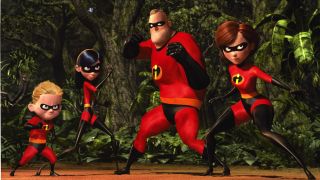
Pixar spin on the Avengers before the Avengers ever reached cinema screens, The Incredibles keeps it a strictly family affair. In the movie, public opinion has turned against superheroes. They’ve been accused of leaving behind too much collateral damage. And so, the Parrs have done their best to keep quiet and hide their powers, having settled down in an idyllic American suburb. But Bob, otherwise known as Mr. Incredible, is struggling to let go of the “glory days”. His actions end up dragging the entire family into a deadly confrontation with an embittered former fan.
The Incredibles is a flawless blend of comic book movie stylings and earnest family comedy. For all the whizz-bang action, which easily rivals most live-action attempts at the genre, the film’s also rich with themes - it touches on bureaucracy, the family unit, and what it means to be exceptional. Less deep, but equally exciting is Edna Mode’s catchphrase, “No capes!”
20,000 Leagues Under the Sea
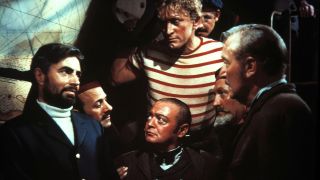
Adapted from the famous Jules Verne novel, it follows a trio of men (including Kirk Douglas’ temperamental harpooner) who have been sent out to investigate reports of a mysterious sea monster. What they discover is one Captain Nemo, the owner of the submarine Nautilus and a sort of steampunk pirate.
Disney has done its best to revive their live-action adventures (the Pirates movies succeeded for a while). But it’s hard to top 20,000 Leagues Under the Sea, a large-scale spectacle that possesses enough imagination to make transport you instantly to another world, one which is intricately constructed and packed with all the thrills of underwater exploration.
The Emperor’s New Groove
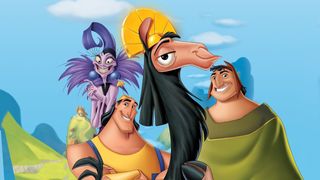
It takes a lot for some people to learn their lesson. Say, being transformed into a llama. That’s the fate that befalls the selfish, egotistical Kuzco, who makes an enemy of his royal adviser Yzma. She plans to poison him and take the throne for herself. Unfortunately, she has a rather unfortunate taste in henchman and the hapless Kronk accidentally swaps the vial of poison with a vial of transforming potion. Only after Kuzco faces the consequences of his actions will he finally be able to turn back.
The early 2000s are too easily dismissed as an era of creative bankruptcy for Disney. The Emperor’s New Groove (and one other film on this list) prove otherwise. The film is fun, zippy, and genuinely funny in a way that feels worlds apart from the epics of the Disney Renaissance – and that’s refreshing in its own way. And how could you possibly shun a movie where Eartha Kitt pays a villain who looks likes a decrepit, centuries-old peacock come to life?
Frozen
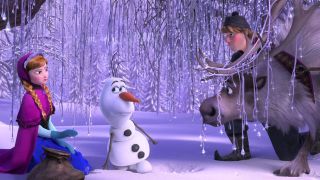
Frozen tells the story of two sisters, Anna and Elsa, who become estranged from each other after their parents’ death and from all the years Elsa has been kept isolated – all because she possesses ice powers she struggles to control. With the help of a kind-hearted ice harvester named Kristoff and his reindeer Sven, alongside a magical snowman named Olaf, the two sisters save the kingdom of Arendelle and discover the key to their special bond.
Frozen offers the best example of the modern Disney princess, Elsa and Anna’s stories don’t prioritise getting rescued or finding some Prince Charming. It’s their relationship that remains at the heart of everything, offering a touching tribute to the power of sisterly love. Plus, the way Idina Menzel belts out “Let it Go” has given us an anthem for the ages.
Inside Out
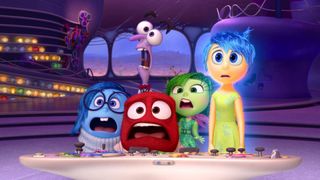
What if your emotions had a emotions? That’s the question at the centre of Inside Out, the most thematically ambitious of all Pixar’s movies. We jump inside the head of Riley, an 11-year-old girl, and meet its colourful inhabitants: Joy, Sadness, Fear, Disgust, and Anger. They’re struggling to guide Riley through the major changes that come from moving halfway across the country, after her parents relocate her from Minnesota to San Francisco.
What’s so profound about Inside Out is how director Pete Docter and his team found a way to directly and elegantly talk to children about depression and the necessary role that sadness has to play in our lives. It’s not just an entertaining film, but an effective therapeutic tool (that extends beyond just children, considering it has a reputation for causing grown adults to start blubbering away).
10 Things I Hate About You
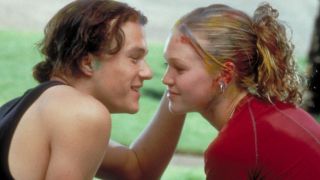
Part of the great '90s trend of turning literary classics into teen comedies (including Clueless and She’s All That), 10 Things I Hate About You reimagines Shakespeare’s The Taming of the Shrew in an American high school. A Shakespeare comedy isn’t a Shakespeare comedy without an elaborate scheme – Cameron tries to woo Bianca, but her father has ruled that she can only date once her antisocial, rebellious older sister Kat does. And so, local bad boy Patrick is enlisted to help seduce Kat and overrun the rule.
Of course, it’s all about Heath Ledger as Patrick, running up and down the school bleachers while serenading Kat with “Can’t Take My Eyes Off You”. The film is filled with the sort goofy romanticism that teens absolutely adore, although just as deserving of a shout-out is Julia Stiles’ Kat and her own big scene, where she tearfully recites an achingly earnest poem about love.
The Nightmare Before Christmas
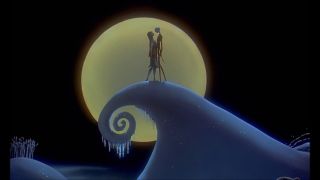
After being plunged into the stop-motion imaginarium of Tim Burton (although the film, in truth, was actually directed by Henry Selick), we follow Jack Skellington, otherwise known as the Pumpkin King and the most heralded resident of Halloween Town. One day, he stumbles into the portal to “Christmas Town” and becomes fixated on the holiday, recruiting his ghoulish friends to help him become the new “Sandy Claws“ and deliver toys to the world.
The Nightmare Before Christmas serves double duty as a holiday classic, since it works for both Halloween and Christmas – meaning it can be enjoyed at any point between September and January. It’s also one of the finest examples of Burton’s trademark blend of Gothic styling and fairytale sensibility, where the strange and unusual are not only celebrated but represent the new norm.
Lilo & Stitch
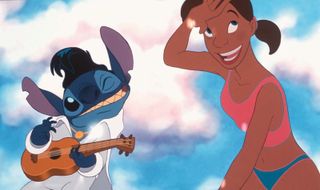
Lilo, who’s under the guardianship of her adult sister after the death of their parents, is in for the surprise of a lifetime when her newly adopted dog, who she names Stitch, actually turns out to be the highly dangerous Experiment 626. He’s an alien genetically bred to be a tool of pure destruction. And while Stitch might not fit in at first, he soon discovers the real meaning of “ohana”, or family.
Out of all of Disney’s animated movies, very few have a message as grounded in reality as Lilo & Stitch. It teaches kids that families come in all shapes and sizes, are functional and dysfunctional, or are bound by blood or by friendship – that doesn't mean they’re any less legitimate. Not only is Stitch as adorable as can be, but he also issues the film’s most heartbreaking piece of dialogue: “This is my family. I found it, all on my own. It's little, and broken, but still good. Yeah, still good.”
The Muppet Christmas Carol
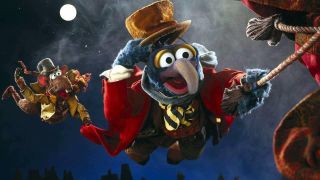
The story here is pretty much the same as Charles Dickens’ 1843 novella, you just need to swap out most of the humans for felt puppets. On Christmas Eve, the miserly Ebenezer Scrooge is given a brutal lesson in human compassion, as he’s visited upon by three ghosts; the Ghost of Christmas Past (creepy), the Ghost of Christmas Present (jolly), and the Ghost of Christmas Yet to Come (not here to mess around), We all know how it ends.
Although Muppet Treasure Island will always have its fans, The Muppet Christmas Carol is considered by many to be not only as the best Muppets movie, but one of the greatest holiday movies ever made. It captures the touching, inward-looking sentiment of the original book, while still throwing in plenty of irreverent humour to keep things feeling festive.
Monsters, Inc.
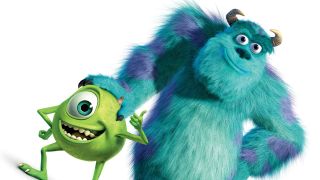
The city of Monstropolis has found its own source of renewable energy: the screams of children. Sulley and his best friend Mike work at the local factory as scarers, using portals to sneak into children’s bedrooms and harvest their terror so they can help power the city. One day, a little girl manages to escape and is let loose on Monstropolis, as Sulley and Mike take it upon themselves to get her home safe.
The brilliance of pitting John Goodman and Billy Crystal against each other makes Monsters, Inc an ingenious throwback to all of the most classic of double acts. But the film isn’t just silliness for silliness’ sake, and, in true Pixar tradition, it’s got a heart of gold at its centre in the form of Boo, the lost girl. She forms a close bond with Sulley, who she calls “Kitty”. It’s a reminder to us all that the fear of the other is an entirely irrational thing.
Who Framed Roger Rabbit?
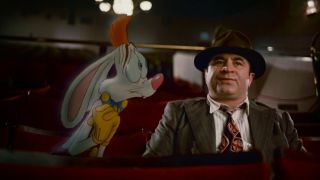
The story takes place in an alternate version of 40s Hollywood were cartoon characters are real, breathing entities, but remain an oppressed minority – exploited for their work and forced to live in the segregated borough of Toontown. One of the biggest toon stars, Roger Rabbit, is falsely accused of the murder of studio head R.K. Maroon. He turns to Detective Eddie Valiant, a jaded alcoholic, in an attempt to clear his name and uncover the sinister secret lurking in the shadows.
Roger Rabbit doesn’t use its mix of live-action and animation as some kind of flashy gimmick, but as a tool to create a rich, believable world that brilliantly parodies the noir genre. It dances on the edge of risqué without alienating its family audience, thanks to its femme fatale Jessica Rabbit (who’s not bad, just drawn that way) and the gruesome effects of Dip. It was also the first time that Bugs Bunny and Mickey Mouse crossed party lines and appeared onscreen together.
Sleeping Beauty
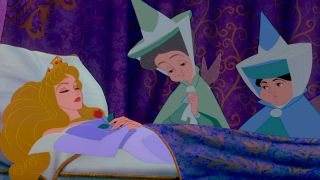
Based on the Charles Perrault fairytale, while also incorporating music from Tchaikovsky’s ballet of the same name, Sleeping Beauty sees a beautiful young princess named Aurora targeted by a curse from the evil fairy Maleficent. Before the sun sets on her 16th birthday, Aurora will prick her finger on a spinning wheel and be consumed by an endless sleep. The only way the curse can be lifted is through the power of true love’s kiss.
Sleeping Beauty is the most beautiful Disney film ever made, with an animation style modelled after medieval tapestries and illuminated manuscripts. And thanks to the classical touch in the film’s score, the final film feels so elegant and refined – it’s a swoon-worthy dream just like the one Aurora sings of, where she’s united with her handsome prince. Add to that, Maleficent’s cackle and haughty air (she only unleashes the curse because she’s offended she wasn’t invited to the christening) makes her an all-time great among the Disney villains.
The Star Wars sequel trilogy
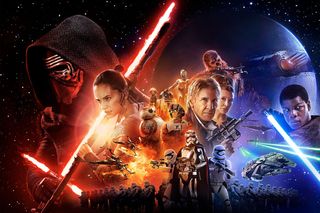
The Force Awakens had a lot riding on it. It needed to kick off the revived franchise and soothe everyone’s memories of the prequels. It introduced us to a new trio of heroes: Rey, a scavenger whose mysterious origins are still hotly debated today, Finn, the stormtrooper-turned-rebel hero, and Poe, the hotshot pilot. Their journeys all intersect as the Resistance stands firm against the rising threat of the First Order. The Last Jedi continues the battle again the new enemy and The Rise of Skywalker brings the entire Skywalker saga to an end.
As much as director J.J. Abrams may have played it safe by replicating the familiar beats of the original trilogy (yes, there’s another Death Star) with The Force Awakens, he also revived many of the elements that were crucial to those movies attaining their classic status. Episode 7 has that same childish sense of excitement that sweeps you up and takes you on a journey across the stars, meeting all kinds of fascinating and bizarre individuals, revisiting old friends, and settling back into the eternal fight of good vs evil. The Last Jedi and The Rise of Skywalker follow and are both divisive for their own reasons. But stick through the trilogy and be rewarded to a grand finale to this astonishing series.
Beauty and the Beast
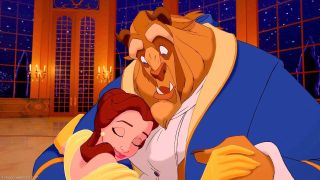
Based on an old French fairytale, the “beauty” of the film’s title refers to Belle, whose love of reading has made her an outsider in her own village – probably because they think a vain, arrogant slab of meat like Gaston is the best there is. But when she becomes the prisoner of a monstrous lion/buffalo hybrid, she discovers that she’s developed a very unusual case of Stockholm Syndrome.
Beauty and the Beast is a wonderful example of what Disney does best: it uses modern technology (including computer animation, which was still in its relative infancy) and modern thinking (Belle is a smart, independent princess), but the result is still as sweepingly romantic as the oldest of folktales. That’s thanks partially to the songs, created by Alan Menken and Howard Ashman.
Mary Poppins
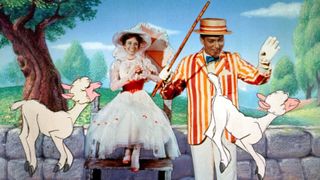
Although this adaptation of the P.L. Travers book series had its troubles (see Saving Mr Banks), the film was still much more warmly regarded than its source material. The Mary Poppins in question is a magical nanny who flies in to help troubled families, including the Bankses, who live on Cherry Tree Lane. The patriarch of the clan, you see, has become far too obsessed with his job at the bank and has lost sight of how much his children need him.
It’s a fairly simple celebration of the joys of imagination and playtime, but the whole affair is wrapped up in an irresistible, whimsical bow. We get to jump into chalk paintings, float up to the ceiling, or tidy rooms with a single snap of a finger. Mary Poppins captured how limitless and full of potential the world felt as a child – which makes it as soothing for adults as it is for the little ones. And what a practically perfect presence Julie Andrews is, making Mary as stern and correct as she is secretly mischievous. Everyone needs a Mary Poppins in their life.
The Little Mermaid
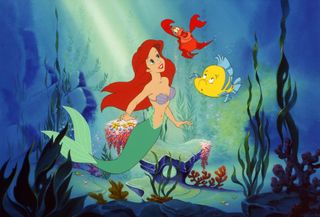
Hans Christian Andersen’s original version of this story was a little more upsetting than what we’re used to. Instead of Ariel getting both her man and her voice back after defeating the evil sea witch Ursula, she, A. has to deal with her new human feet bleeding constantly and being agony to walk on, and, B. ends up sacrificing herself to save the prince and dissolves into a pile foam. It’s hard to imagine Disney trying to market “Ariel as foam” or “Ariel with realistic bleeding feet” dolls.
The Little Mermaid kicked off the Disney Renaissance and arguably still boasts the studio’s best princess. Unlike pretty much all of her predecessors, Ariel isn’t some genteel, perfect doll waiting to be rescued. She drives the film’s plot, and, importantly, she’s deeply (but relatably) flawed. Rebellious and excitable, her story is defined by her curiosity and her committed belief to the idea that the grass is always greener on the other side – or, in this case, that the grass exists in the first place.
The Avengers movies
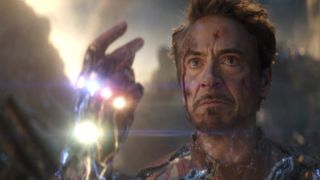
It’s hard to pack the entire decade-long history of the MCU into one paragraph. Weaving together characters and plotlines from every single entry of the series, the Avengers movies act as the big cornerstones for Disney and Marvel's huge series. the conclusion is, of course, Endgame. After the warmongering Thanos collects all the Infinity Stones and causes the Snap, instantly wiping out half of all living things, the surviving heroes are left to pull up their bootstraps and save the day.
Endgame is unlike any other film that’s existed before it. It’s the final chapter of a story that’s been gradually told over 20 different movies – including a few on this list, although we've kept only the best here. That’s the kind of ambition that would be doomed to fail if Marvel didn’t get the balance right: it needed to be epic on an unimaginable scale, while still servicing the characters that fans had grown so attached to over the years. We recommend – if you haven't already – diving into the Marvel movies now!
The Sound of Music
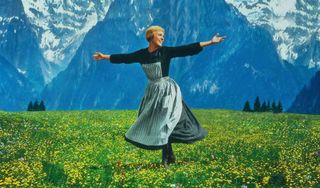
This classic musical is actually based (although it’s no winner when it comes to historical accuracy) on the real-life Maria Von Trapp. She was a nun who married the Austrian naval commander Georg von Trapp and became the stepmother to his seven children. They performed concerts together under the growing shadow of Nazi rule, before packing their bags and moving to the United States. In reality, they just took a train to Italy, although the film creates a much more dramatic escape.
It’s the unwavering sense of optimism that makes this musical sing, as best exemplified by “My Favourite Things”. When the dog bites, when the bee stings, or when evil is encroaching from all sides, sometimes it’s the smallest and most fragile of joys that can get us through the darkest of times.
To get the best deal on the streaming service, check-in with these Disney Plus bundles. Now that the free trial for Disney Plus is gone, it's probably the cheapest way of getting on board.
